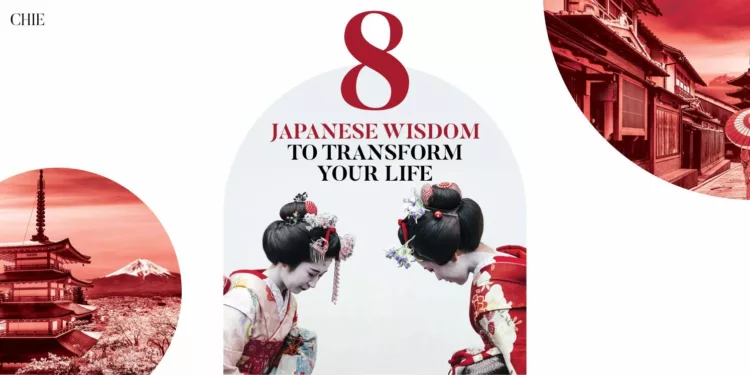Japan is the land of infinite wisdom, where centuries-old techniques, practices, and heritages have unleashed the essence of life. Drawing inspiration from the Zen state of mind, which aims to bring peace, harmony, and happiness not only to the self but also to the outside environment. Here are some of their innate pearls of wisdom that have been shown to bring more clarity for a calm mind, healthy body, and a replenished soul.
1. Ikigai
Perhaps the most famous Japanese concept is made up of the confluence of two words, ‘iki’, which means life, and ‘gai,’ which means worth or value. This phrase is associated with finding life’s purpose and meaning, ultimately leading to fulfilment and happiness. It also states as ‘the reason to wake up in the morning’, which covers three aspects – what makes you earn money, what drives your passion, and what you can do to improve the world.
2. Kaizen
Kaizen is a concept that can be applied in all areas of life, which enables a mindset of continuous improvement. It states that small changes make a bigger difference in the future, like setting small and achievable goals. It also emphasizes practising mindfulness and constantly learning new things to become a better overall individual. This can be applied to health, relationships, financial well-being, time management, self-care, and hobbies.
3. Wabi Sabi
This beautiful philosophy celebrates beauty in imperfection that stands true to the nature of life, which is impermanent yet wonderful. Finding beauty in the simpler things in life is its core in the Wabi ideology involving simplicity and humility. The Sabi ideology seeks to find dignity in the passage of time and to embrace the effects of ageing. Together, they form this idea of minimalism, which means decluttering the mind and the surroundings while cherishing each moment.
4. Hara Hachi Bu
This wisdom is highly needed in the age of overconsumption and overeating, which says, ‘Eat until you are 80% full’. This sheds light on eating not to the brim where you feel overstuffed, but till your mind, body, and soul are satisfied. Practiced in the Okinawa area, where people live very long lives and have low rates of chronic illnesses. This aids in mindful eating habits, portion control, a balanced diet, and better digestive health.
5. Forest Bathing
One of the cornerstones of Japanese wisdom is the connectivity to nature, which can be seen in their architectural style as well, which uses wood, stone, plants, rice paper dividers, and other natural elements. Forest bathing is one such exercise where a person goes to a natural forest and leaves all the worries behind to enjoy its sensory paradise. Reaping in all the goodness like fresh air, deep breathing, disconnection to technology, and exploration makes this very important today.
6. Kakeibo
This term means ‘household financial ledger’, which keeps into account the budget that further helps track and control expenses. First introduced in 1904, this technique allows for the individual to set a goal for the month and also allot funds for saving fixed expenses and miscellaneous spending. Noting down each expense, even the remote one in the ledger, can make the individual understand their spending capacity and shortcomings, allowing for more reflection and mindful spending.
7. Shoshin
Translating to the ‘beginner’s mind’, associated with Zen Buddhism and Japanese martial arts, it teaches the aspect of opening up the mindset to a newer perspective. It deals with the phenomenon that a beginner feels when starting a new task with curiosity and enthusiasm to know more about the work. When an expertise is formed, people become rigid in their ways, and using this technique can broaden their horizons.
8. Pomodoro Technique Developed in the 1980s, the word is derived from ‘tomato’ due to kitchen equipment shaped like that to track time. In this technique, a person is prompted to fully devote their attention and time to a task for 25 minutes (one pomodoro) without distractions and mindlessness. After the time is up, even if you haven’t completed the task, you have to stop and take a 5-minute breather to relax, stretch, listen to music, etc. This helps to stay focused, enhance productivity and improve time management.











